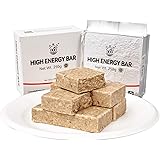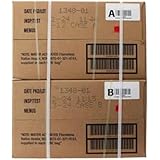Hello fellow preppers! If you’re anything like me, diving into the world of preparedness can be both thrilling and daunting. One minute you’re all in—stocking up on supplies, learning new skills, and planning for various scenarios—and the next, you find yourself feeling overwhelmed, stressed, or burnt out. I’ve been there, and I know how crucial it is to keep our spirits high while we prep for the uncertain. So, I’ve gathered some practical tips based on my own experiences that I think can really help. Let’s jump in!
1. Set Realistic Goals
First things first, let’s talk about setting goals. When I first started prepping, it was easy to dive headfirst into everything at once. I wanted to learn survival skills, stockpile food, and build a homestead—all at the same time. But trust me, overloading yourself is a recipe for disaster.
Focus on What Matters
When you’re setting goals, it’s important to prioritize what truly matters for you and your situation. Ask yourself, what are the most pressing needs? Maybe it’s food security or learning basic first aid. By honing in on a couple of key areas, you won’t scatter your energy too thin.
For example, start with a goal like “I will acquire three months’ worth of non-perishable food” instead of trying to secure every kind of prepper supply out there. Knowing exactly what you’re working towards can help keep the flame alive in your prepper journey.
Break It Down
Once you’ve narrowed down your goals, break them into manageable chunks. When I decided to learn more about gardening, instead of saying I’d create an entire garden by spring, I broke it down into smaller steps like researching local plants, creating a plan, and then starting with just one or two containers.
This approach not only makes the tasks feel less daunting but also allows you to celebrate small victories along the way, which is a great motivator to continue!
Reassess and Adapt
Life can throw curveballs that may shift your priorities. I’ve had to adapt my prepping strategies quite a few times due to changes in my work schedule or personal life. It’s essential to regularly reassess your goals to ensure they align with your current situation. Don’t be afraid to scrap what’s not working and adjust your focus as needed.
2. Balance Prep with Leisure
Prepping shouldn’t overshadow the fun in life. If you find yourself constantly thinking about survival three moves ahead—a bit of adventure can help alleviate that stress. I learned the hard way that neglecting personal time is a surefire way to burnout.
== > What if ... Get a FREE Subscription to PREPARE
Schedule Downtime
Just like how we schedule our prepping tasks, it’s vital to schedule downtime too. Set aside time each week to do something that you love—be it hiking, reading, or even binge-watching a favorite show. Make a point to disconnect from the prepping mindset now and then.
For me, this means heading out for a hike, away from the phone and the lists. The fresh air revitalizes my spirit and reminds me why I started prepping in the first place—preserving the freedom to enjoy the outdoors!
Involve Friends and Family
Sharing your prepping hobbies with loved ones can make it more enjoyable. I often invite friends for a movie night or to learn new skills together. Doing things as a team not only brings laughter but creates lasting memories beyond just prepping, giving your life balance.
Plus, involving others can lead to new ideas and skills—making the journey lighter and more fun for everyone involved!
Find a New Hobby
I’ve also found that dabbling in a new hobby can help refresh your mind when you’re feeling burnt out. Whether it’s cooking, painting, or even photography, exploring something different helps re-energize my prepping endeavors too.
When I picked up gardening as a hobby, not only did it enhance my prepping skills, but it also became a stress reliever. Nature has a funny way of grounding us when life feels chaotic.
3. Stay Connected with the Community
Being part of a prepping community is an underrated way to combat burnout. It’s so reassuring to connect with folks who share your passion and understand your challenges. I can’t stress enough how much my prepping journey improved when I became more involved in the community.
Join Local or Online Groups
Selecting a prepping group to join—either in person or online—can provide motivation and support. These spaces are great for sharing tips and resources, and the camaraderie eases the weight of solo prepping. I regularly attend local meetups or participate in online forums where we discuss everything from skills to current events, which always reignites my interest.
Just hearing stories from fellow preppers inspires me to think outside the box and brings a freshness to my own strategies!
Participate in Workshops and Events
Workshops and events provide hands-on experience and learning opportunities that can make prepping exciting and dynamic. I’ve attended quite a few, ranging from food preservation to emergency first aid. Not only do you gain valuable knowledge, but you create a network of like-minded individuals that enhances your operations.
Plus, these gatherings often feel like community picnics! You get to swap ideas, take part in some friendly competitions, and even share a meal. What’s not to love?
Share Your Knowledge
Nothing boosts your spirit like sharing what you know with others. Whether it’s teaching a friend about self-defense techniques or sharing your favorite prepping recipes on a blog, contributing knowledge not only helps others but also reaffirms your own skills.
Whenever I teach someone else, it reignites my passion for that subject and helps solidify my understanding. And who knows? You might spark a new prepper in the process!
Get Preparedness and Self-Reliance Tips. Subscribe Now!
4. Make Reflective Practices a Habit
Taking a step back to reflect can do wonders for your mental health. I initially overlooked this, thinking I needed to constantly push forward without pauses. However, I found that taking a moment to reflect on my experiences gave clarity and helped me recharge.
Journaling
Starting a journal has been incredibly beneficial for me. It feels good to jot down my successes, what I’m grateful for, and even my setbacks. Reflecting in this way helps me understand my preparation journey better, and I often find patterns that help inform my future goals.
Plus, it’s a private space where you can vent about your struggles without fear of judgment. Writing has become a type of therapy for me amidst the chaos of prepping.
Practice Mindfulness
Integrating mindfulness practices like meditation into my routine has been a game changer. These moments of quiet and presence allow me to reconnect with my intentions and values regarding prepping. I often find that a simple 10-minute session of mindfulness can reset my entire day.
When I’m more centered, I tackle projects with renewed vigor instead of anxiety, which is a great way to sidestep burnout.
Evaluate Your Progress
Regularly evaluate where you are in your prepping journey. Reflect on your goals, what’s working, and where you might need to pivot. This kind of self-examination helps you celebrate the wins and recognize areas for growth. Last month, I celebrated my first year of prepping and it felt incredible to see how far I’ve come!
It also reminded me of the importance of balance. Recognizing progress helps to diminish anxiety while boosting motivation—what a win-win!
5. Embrace Flexibility
Finally, flexibility is key! I used to be so rigid in my preparations—thinking every scenario had to be accounted for perfectly. But that leads to unnecessary stress. Over time, I’ve learned the value of being adaptable in my approach to prepping.
Be Open to Changes
The best prepper plans can go awry due to unforeseen circumstances. Whether it’s a global crisis, personal life changes, or something entirely different—being open to changes ensures you can adapt without stress. I’ve found that when I let go of strict timelines or expectations, I can pivot much easier.
Instead of panicking if things don’t go according to plan, I’ve leaned into adapting and finding creative solutions on the fly. It’s a much healthier way to deal with unpredictability!
Learn from Mistakes
Instead of viewing mistakes as failures, I try to see them as learning opportunities. Every misstep is a chance to grow and refine your approach. The more flexible you can be, the easier it is to bounce back when something doesn’t go as anticipated. After a garden disaster early on, I learned what plants work best in my environment, and now my garden flourishes better than ever!
Being adaptable fosters resilience, which can only strengthen your prepper journey over time. Mistakes can lead to brilliant discoveries if we let them!
Celebrate Adaptation
And lastly, don’t forget to celebrate your adaptability! Commemorating the adjustments you embrace reinforces the positives of staying flexible. Maybe take yourself out for ice cream, or share your success story with friends!
When I realized my significant adaptations have led to better results than my original plans, an intrinsic feel-good moment occurred, reminding me to keep moving forward with enthusiasm.
Conclusion
Prepper burnout is a real challenge we face, but with these practical tips, I hope you feel more equipped to stay motivated and engaged in your preparedness journey. Remember, it’s about balance, reflecting, connecting with others, and being flexible—ultimately making your prepping an enjoyable adventure.
Frequently Asked Questions
1. What is prepper burnout?
Prepper burnout occurs when someone becomes overwhelmed and stressed by the constant demands and pressures of preparing for emergencies or disasters. It can lead to feelings of exhaustion or frustration.
2. How can I set realistic goals for prepping?
Identify your greatest needs, break larger goals into smaller, achievable steps, and regularly reassess your goals to stay aligned with your current situation and resources.
3. Why is community involvement important in prepping?
A community can provide support, fresh perspectives, and motivation, helping to ease the stress associated with solo prepping efforts while also allowing for new learning opportunities.
4. What are some effective ways to reflect on my prepping journey?
Journaling, practicing mindfulness, and evaluating your progress can help enhance your self-awareness and recharge your enthusiasm for prepping.
5. How do I maintain flexibility in my prepping plans?
Stay open to changes, learn from your mistakes, and celebrate your adaptability. Embracing flexibility allows you to adjust your plans without the stress of unrealistic expectations.






